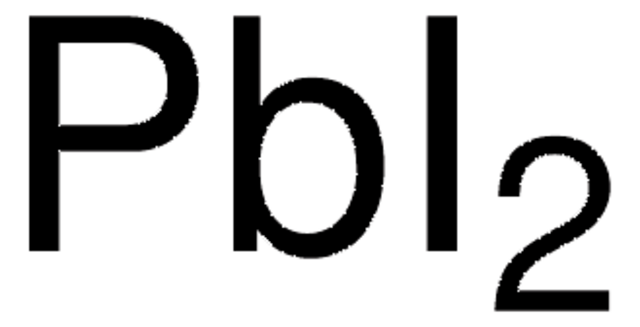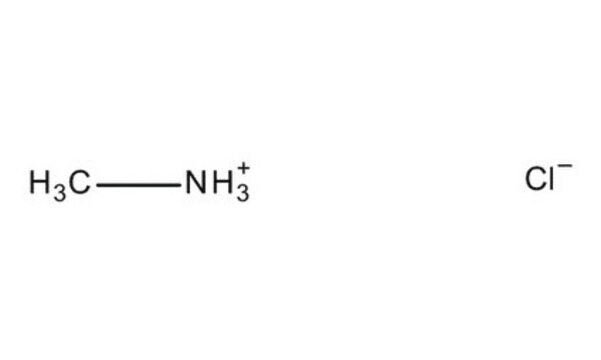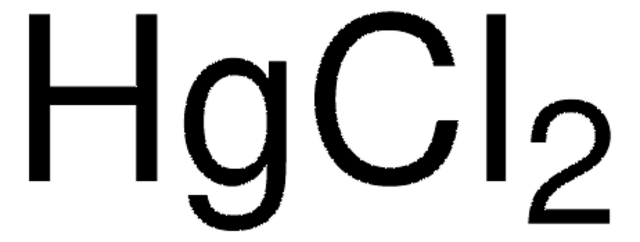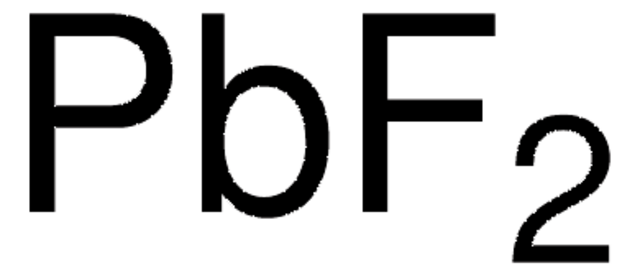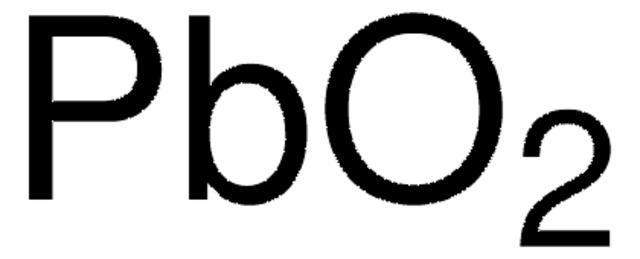268690
Lead(II) chloride
powder, 98%
Synonym(s):
Cotunnite
About This Item
Recommended Products
vapor pressure
1 mmHg ( 547 °C)
Quality Level
assay
98%
form
powder
reaction suitability
reagent type: catalyst
core: lead
bp
950 °C (lit.)
mp
501 °C (lit.)
density
5.85 g/mL at 25 °C (lit.)
SMILES string
Cl[PbH2]Cl
InChI
1S/2ClH.Pb/h2*1H;/q;;+2/p-2
Inchi Key
HWSZZLVAJGOAAY-UHFFFAOYSA-L
Looking for similar products? Visit Product Comparison Guide
Application
signalword
Danger
Hazard Classifications
Acute Tox. 4 Inhalation - Acute Tox. 4 Oral - Aquatic Acute 1 - Aquatic Chronic 1 - Carc. 2 - Repr. 1A - STOT RE 1
Storage Class
6.1C - Combustible acute toxic Cat.3 / toxic compounds or compounds which causing chronic effects
wgk_germany
WGK 3
ppe
Eyeshields, Gloves, type P3 (EN 143) respirator cartridges
Choose from one of the most recent versions:
Already Own This Product?
Find documentation for the products that you have recently purchased in the Document Library.
Customers Also Viewed
Articles
Colloidal quantum dots (CQDs) are semiconducting crystals of only a few nanometers (ca. 2–12 nm) coated with ligand/surfactant molecules to help prevent agglomeration.
Controlled synthesis of metal clusters regulates ligands and atoms, advancing metal nanomaterial synthesis.
Next generation solar cells have the potential to achieve conversion efficiencies beyond the Shockley-Queisser (S-Q) limit while also significantly lowering production costs.
Dr. Perini and Professor Correa-Baena discuss the latest research and effort to obtain higher performance and stability of perovskite materials.
Our team of scientists has experience in all areas of research including Life Science, Material Science, Chemical Synthesis, Chromatography, Analytical and many others.
Contact Technical Service



